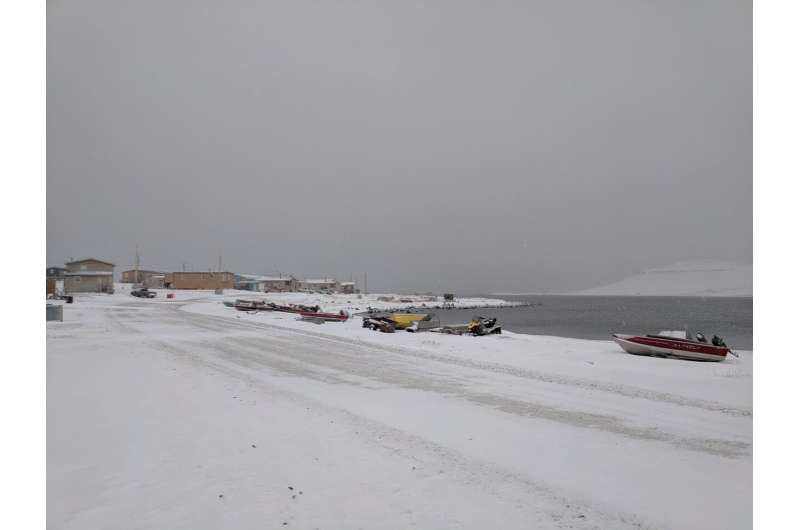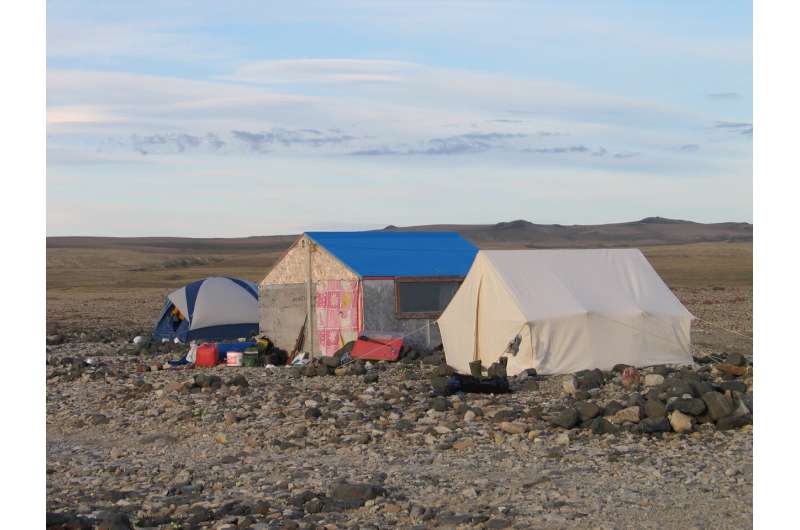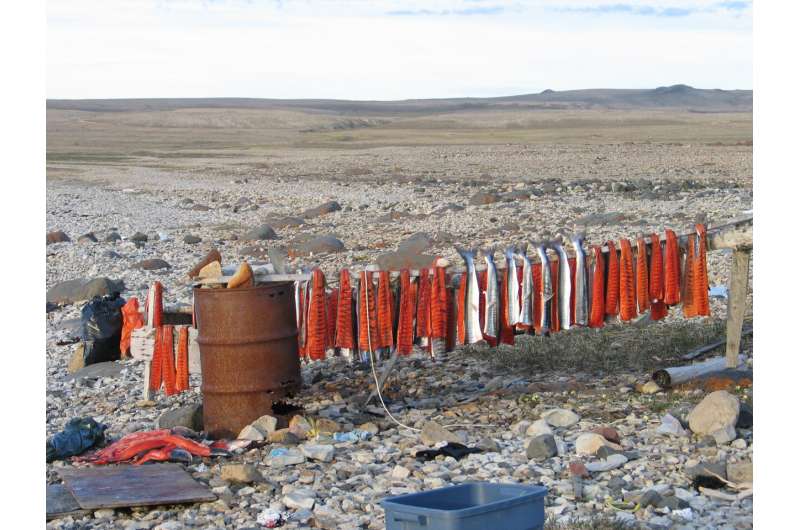This article has been reviewed according to Science X's editorial process and policies. Editors have highlighted the following attributes while ensuring the content's credibility:
fact-checked
peer-reviewed publication
trusted source
proofread
Data from Canadian Artic indicates local Indigenous food production saves costs and carbon

Emphasizing local food production over imported substitutes can lead to significant cost and carbon savings, according to data from the Inuvialuit Settlement Region in the Canadian Arctic.
The research, conducted by the Max Planck Institute for Evolutionary Anthropology and the Inuvialuit Regional Corporation, shows potential annual savings of more than 3.1 million Canadian dollars and roughly half the carbon emissions when locally harvested food is used instead of imported food. The study underscores the importance of climate change policies that take local food systems into account. Weakening of these local systems could lead to increased emissions and jeopardize the health and food security of remote communities.
The paper is published in the journal Proceedings of the National Academy of Sciences.
Local foods are critical to the food security and health of Indigenous peoples around the world, but local "informal" economies are often invisible in official economic statistics. Consequently, these economies may be overlooked in the policies designed to combat climate change. For instance, Indigenous communities in the North American Arctic are characterized by mixed economies featuring hunting, fishing, gathering and trapping activities, alongside a formal wage economy.
The region is also undergoing a rapid transformation due to social, economic and climatic changes. In Canada, the introduction of carbon taxation has implications for the cost of fuel utilized in local food harvesting.
As a first step in understanding the sensitivity of the Arctic food systems to carbon tax policy, researchers from the Max Planck Institute for Evolutionary Anthropology, in collaboration with the Innovation, Inuvialuit Science, and Climate Change Division of the Inuvialuit Regional Corporation, attempted to estimate the economic and environmental importance of local food production in the Inuvialuit Settlement Region in the western Canadian Arctic.
To do this, the authors utilized data from a regional study of harvesting conducted in 2018, aiming to calculate the total edible weight of food produced by Inuit harvesters within a one-year timeframe.

Reducing CO2 emissions requires locally-adapted policy
The authors then calculated what it would cost to replace these foods with market substitutes, like beef, pork, chicken or farmed fish. They then gathered data from agriculture and transport science to estimate the carbon emissions associated with producing and shipping market substitutes to Arctic communities.
Finally, using data from a community-based study of Inuit harvesting in one community in the Inuvialuit Settlement Region (Ulukhaktok), the research team was able to estimate the amount of gasoline used per kilogram of food harvested, and used this information to infer the total amount of gasoline used in local food production in the region.
The resulting estimates suggest that, under plausible scenarios, replacing locally-harvested foods in the Inuvialuit Settlement Region with imported market substitutes would cost over 3.1 million Canadian dollars per year and emit over 1,000 tonnes of CO2-equivalent emissions per year. In contrast, gasoline inputs to local harvesting cost approximately 295,000 Canadian dollars and result in 317 to 496 tonnes of emissions, less than half of what would be emitted by market substitutes.
"Our findings illustrate how local food harvesting, even when reliant on fossil fuels—as is the case in Canadian Arctic communities—are more economically-efficient and less carbon intensive than industrial food production," says first author Elspeth Ready, a researcher at the Max Planck Institute for Evolutionary Anthropology. "Local food harvesting also reduces reliance on supply chains that are vulnerable to climate change."

The results indicate that climate change policies that fail to account for local food production may undermine emission targets and adversely impact food security and health in remote communities, which face heightened economic and logistical constraints relative to more populated regions.
This finding is significant because it illustrates that while climate change is a global crisis, successfully reducing emissions requires locally-adapted policy. The statistical modeling approach developed in the paper lays a foundation for similar studies in other regions.
More information: Ready, Elspeth, Indigenous food production in a carbon economy, Proceedings of the National Academy of Sciences (2024). DOI: 10.1073/pnas.2317686121
Journal information: Proceedings of the National Academy of Sciences
Provided by Max Planck Society




















